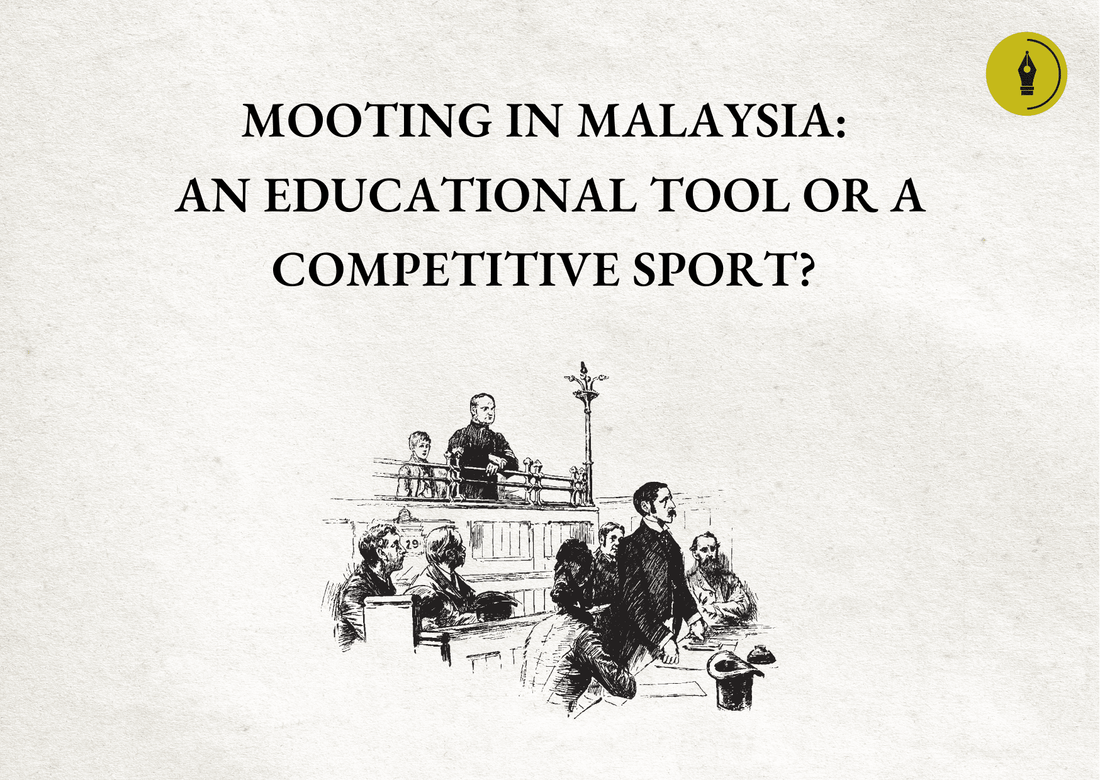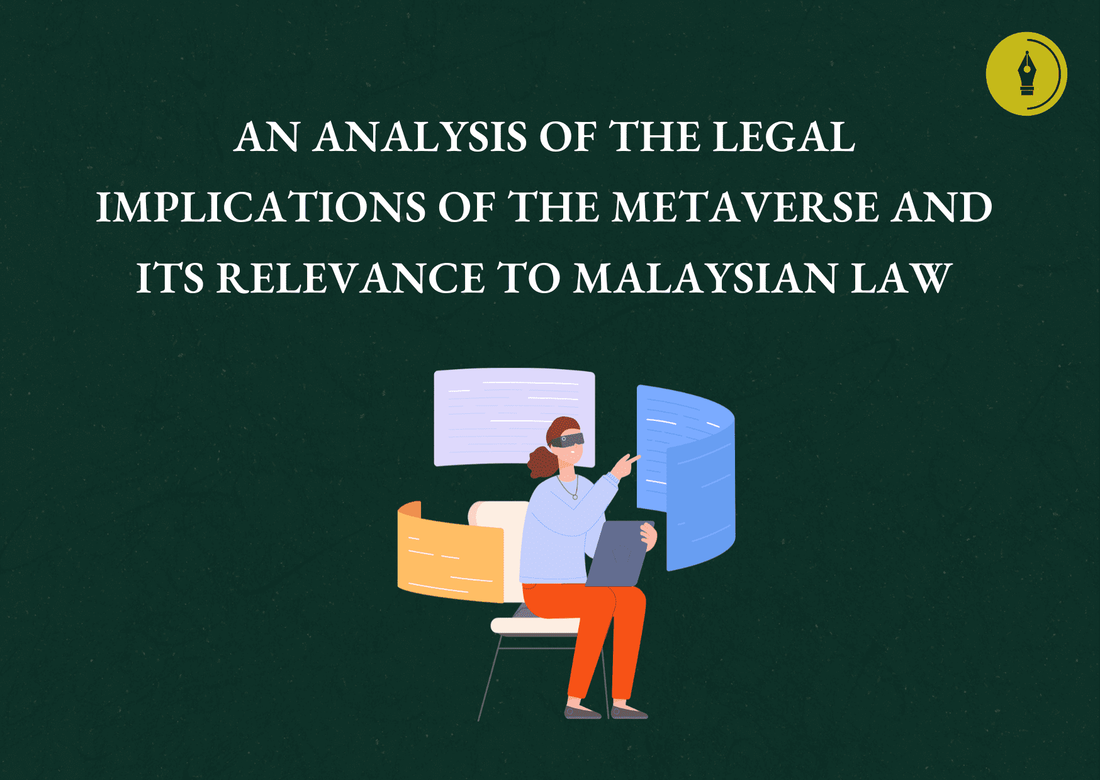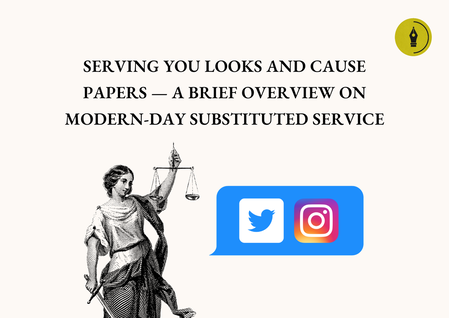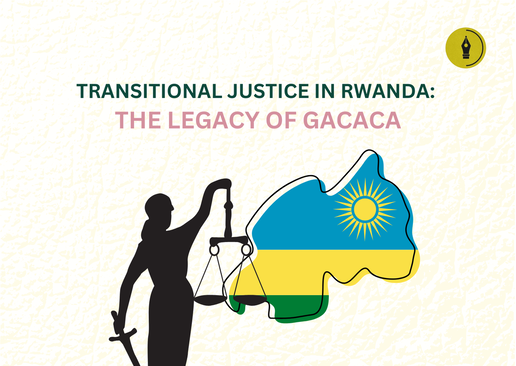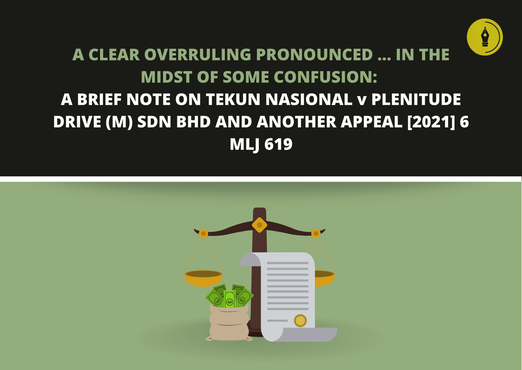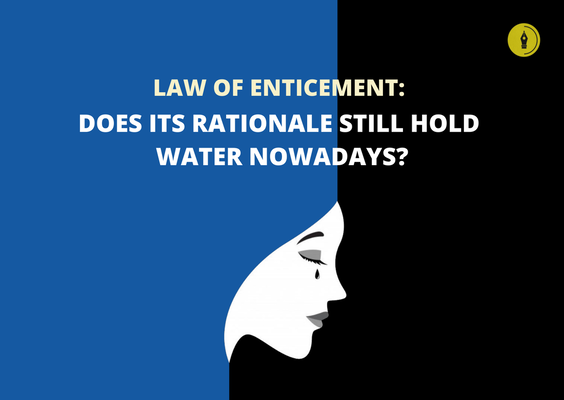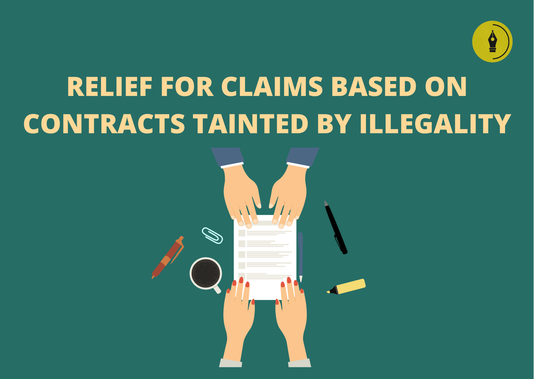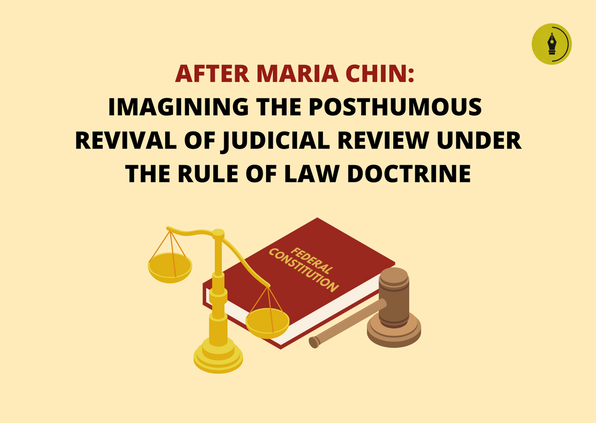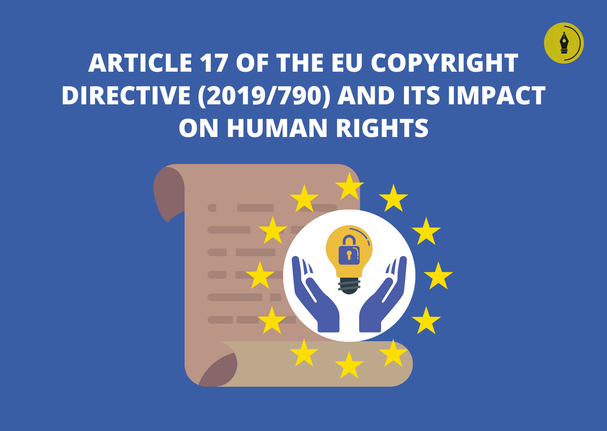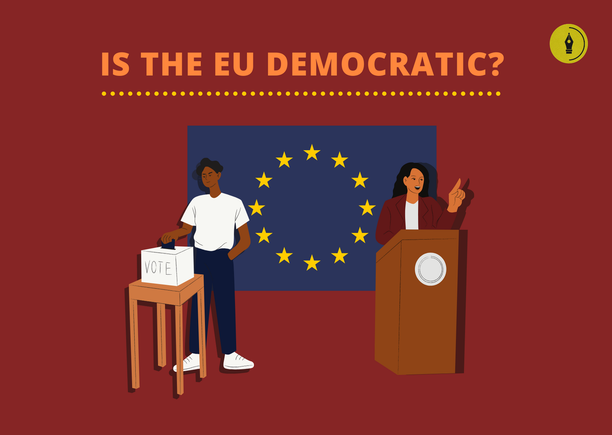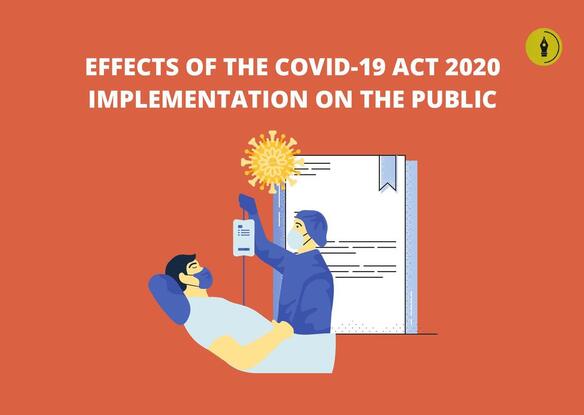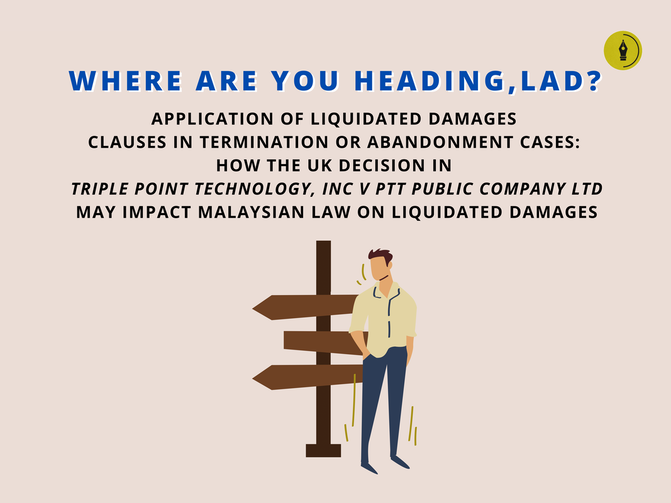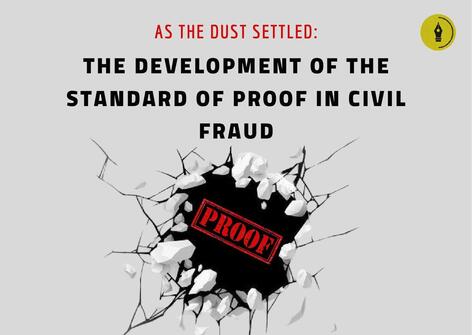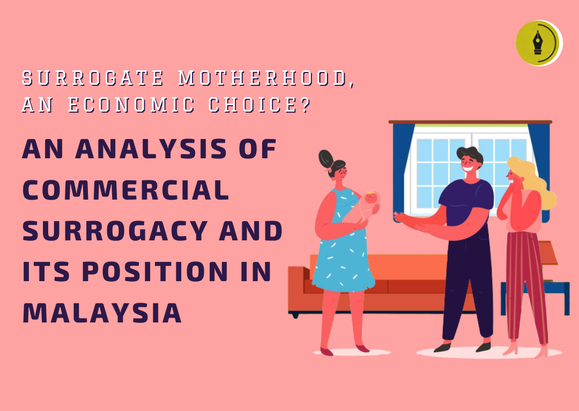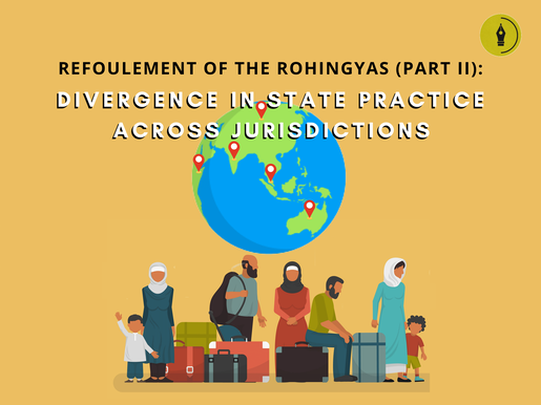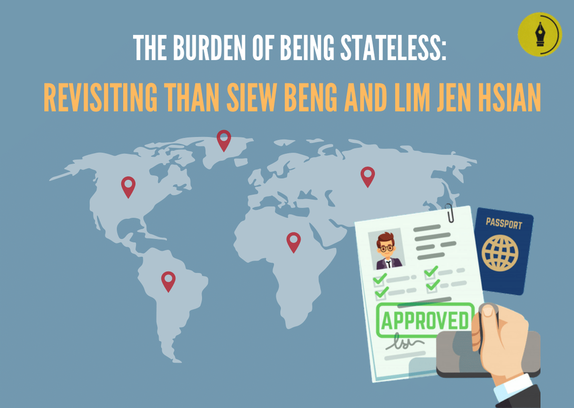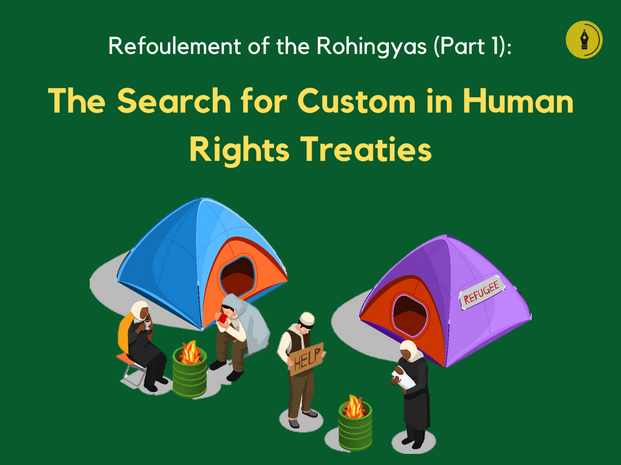|
Written by Edward Lee Way Yang & Nevyn Vinosh Venudran, Class of 2023, Faculty of Law, Universiti Malaya. Edited by Abby Si Xinyi. Reviewed by Pravena Sreetharan. Mooting has become a significant part of the law school experience in Malaysia. Most universities have it as a compulsory module, and students are also exposed to various national and international competitions outside of the curriculum. While some approach it as an educational tool that can equip students with advocacy, drafting, and research skills, others view it solely as an academic sport, detached from practical legal education. Both approaches entail different consequences. This article delves into the fundamental disparities between mooting and real-life practice, highlighting the shortcomings of relying on mooting as an educational tool. Instead, this article posits that mooting should be regarded a competitive sport, and law schools should provide a comprehensive legal education, separate from mooting, that focuses on practical skills. I. WHAT’S THE BIG DEAL?
When it comes to mooting in law school, there are two distinct paths that institutions can take — an educational path or a competitive path. The educational approach prioritises inclusive learning to ensure that every student is given the opportunity to develop their advocacy, drafting, and research skills, leaving no one behind. In contrast, the competitive approach emphasises competition and focuses on cultivating the most talented students to win international titles, enhancing the reputation and morale of the institution.
0 Comments
13/3/2024 0 Comments An Analysis of the Legal Implications of the Metaverse and its Relevance to Malaysian LawWritten by Muhammad Aqil Bin Khairul Azhar & Associate Professor Dr Manique Cooray (Faculty of Law, Multimedia University). Edited by Ashley Khor Xin Hui. Reviewed by Pravena Sreetharan. The Metaverse has become a phenomenon to which Meta’s — previously known as Facebook — Chief Executive Officer, Mark Zuckerberg, announced a wealthy capital of over USD 36 Billion to his metaverse which impressed the online community. However, there are number of legal issues that need to be addressed within the Metaverse: the adequacy of the law governing it especially with regard to intellectual property and cybersecurity. This paper discusses specific legal issues concerning copyright, trademark, data protection and identity theft, and the applicability of Malaysian laws. This paper will end with suggestions to assist in solving the issues outlined. I. INTRODUCTION
The word ‘Metaverse’ is a combination of two distinct terms: ‘meta’, which originates from the ancient Greek word meaning after or situated behind or beyond;[1] and "verse," which is an abbreviation of the word ‘universe’. Discussions about the Metaverse can be traced back to the late 20th century, when Neal Stephenson introduced a concept for his science fiction novel, Snow Crash. In his book, humans are depicted as programmed avatars who interact with one another in a virtual three-dimensional (‘3D’) space, inspired by the introduction of Web 2 on the contemporary internet.[2] 15/10/2023 1 Comment Serving You Looks and Cause Papers — A Brief Overview on Modern-Day Substituted ServiceWritten by Saradha Lakshmi Hariharan, an associate at Lim Chee Wee Partnership and alumna of the Faculty of Law, Universiti Malaya. Edited by Sulakhni Kaur Khosa. Reviewed by Pravena Sreetharan and Devon Sia. This article explores the rise of social media and electronic communication in the legal realm, specifically in the context of substituted service in the Malaysian landscape. Various methods of substituted service through social media or messaging platforms such as Facebook, Twitter, and even Non-Fungible Tokens (NFTs) in foreign jurisdictions are discussed. This article further highlights the courts’ strict measures in ensuring proper identification of the defendant before allowing substituted service. The author predicts that in due time, Malaysian courts will follow suit and implement substituted services through social media or electronic means. Overall, this article provides valuable insights into the evolution of substituted services and their potential impact on the legal system.
I. INTRODUCTION The legal realm is no stranger to the rise of social media and the evolution of technology. Additionally, the COVID-19 pandemic created an emergent situation where courts were required to rapidly transition to rely heavily on electronic means in the interest of justice. Accordingly, the use of substituted service became a point of interest. Even prior to the worldwide pandemic, various jurisdictions have started using social media to effect valid service. This is thus a welcome change to ensure that service remains effective and that justice is not disrupted. As such, this paper will firstly examine the Malaysian landscape of substituted service, explore the various methods for good service via social media that have been accepted by the courts in multiple jurisdictions, then comment on the possible evolution of substituted service in Malaysia to include various electronic means. Written by Luc Choong, a final year Bachelor of Laws student in Universiti Malaya. Edited by Adele Soh Chien Yi. Reviewed by Pravena Sreetharan. The Rwandan Genocide was a modern-day catastrophe resulting in an estimated million casualties. With many aggrieved seeking a semblance of justice for the death, sexual violence, and pillaging witnessed, Rwanda utilised gacaca courts to accommodate such requests. However, being a communal court with no legal representation — with laymen presiding as judges empowered to sentence the guilty punitively — such a mechanism for justice has had various implications on the Rwandan society. With this context, the author aims to highlight the manners in which the courts operated, the criticisms received by gacaca courts, and the impacts it may have imprinted on present-day Rwanda.
I. INTRODUCTION: RWANDA’S INTERNAL POLITICS PRE-GENOCIDE The need for transitional justice is a preliminary indicator that a nation’s past was scarred. This mechanism is utilised in situations where ‘systematic or massive violations of human rights’ had occurred,[1] whereby broad goals of rebuilding a nation whilst providing recourse for those aggrieved are sought after. The Rwandan genocide saw two factions, the Hutus and the Tutsis engaging in armed combat in 1994.[2] These two factions were splintered not by nationality nor religion, but rather, disproportionate economic privileges rooted in colonialism. This culminated from strategies of divide-and-conquer amongst Rwandans by European rule.[3] The distinction between the two factions stemmed from the Hutus being designated as farmers whereas the Tutsis looking after livestock, with the latter being far more profitable. As time progressed in Rwanda, the Tutsi minority entrenched their power domestically, emerging as the local elites.[4] Written by Siti Nurul Adillah Binti Mohamad Zaki. Edited by Aina Tsuraiya. Reviewed by Chelsea Ho and Pravena Sreetharan. It has long been recognised on both international and domestic planes that children must be afforded special safeguards against any potential harm or threat for they are vulnerable. Nonetheless, such protections give little to no acknowledgement of a child’s evolving capacities and maturity levels which equip them with decision-making abilities. Fortunately, in the United Kingdom, there has been progression into accepting and recognising a child’s maturity and intelligence via the Gillick competence rule. Throughout the article, the author explicates the possibility of introducing such a rule into the Malaysian jurisprudence. I. INTRODUCTION
A child is defined as any person under the age of 18;[1] this is also the age of majority in Malaysia.[2] As children are vulnerable due to their physical and intellectual immaturity, the United Nations Convention on the Rights of the Child (‘UNCRC’) expressly recognises the need to afford them with special safeguards.[3] This can be done by adopting transparent procedural safeguards in assessing and determining a child’s best interests.[4] For example, institutions that work closely with children such as schools should have clear and accessible standard operating procedures concerning their management of child protection cases.[5] Domestically, the need for children to be afforded special safeguards has been reflected in the preamble of our Child Act 2001.[6] Traditionally, children were viewed as passive recipients of protection under parental and governmental control.[7] Besides being empowered with a broad array of unrestrained authority, parents were also regarded as the primary rights-holders in their children’s upbringing.[8] As a result, this inculcated a paternalistic approach towards children to the detriment of their autonomy. However, child rights on the international plane have marked a progressive development upon the introduction of a child’s ‘evolving capacities’ in the UNCRC; it establishes that a child is capable of being a rights-holder under international law.[9] Consequently, the position has since departed from the traditional child-saver approach that hinges on child protection through prevention of harm and provision of assistance for the child’s essential needs.[10] 24/9/2022 2 Comments Specific Performance: An End to the Irrebuttable Presumption of Uniqueness of Land?Written by Phua Syuen Yue and Cheam Yean Quen, final year students at the Faculty of Law, Universiti Malaya. Edited by Melvin Ng. Reviewed by Ashley Khor and Ee Jie. Classically, specific performance, also known as a discretionary equitable remedy, was granted almost automatically in contracts involving lands, as each piece of land is considered unique. However, various common law jurisdictions have altered their positions of this award in such contracts. This article seeks to explore the pros and cons of the traditional English approach, as well as the modified approaches in other common law countries. I. INTRODUCTION
In common law, specific performance is a ‘decree by the court that requires the party against whom it is directed, to do what he promised to do under a contract’.[1] Created and developed by the English Court of Chancery, this equitable remedy is a manifestation of the maxim that equity acts in personam — allowing a court of equity to order parties to perform their contractual obligations.[2] Like other equitable remedies, specific performance is also a discretionary remedy unlike damages — which is available as of right. Unlike civil law, specific performance has traditionally been viewed as a secondary remedy in common law, which is only limited to situations where the primary remedy, i.e. damages, have been found to be inadequate.[3] 16/4/2022 1 Comment A Clear Overruling Pronounced … in the Midst of Some Confusion: A Brief Note on Tekun Nasional v Plenitude Drive (M) Sdn Bhd and Another Appeal [2021] 6 MLJ 619Written by Ms Choong Shaw Mei, Advocate and Solicitor (Malaya) (non-practicing) and part-time lecturer at the Faculty of Law, University of Malaya. Edited by Ashley Khor. Reviewed by Ee Jie. In contract law, liquidated damages clauses are often regarded as effective and important means for contracting parties to negotiate and agree upon compensation payable for the non-performance of contractual obligations. However, Section 75 of the Contract Act 1950 often strikes this clause out. In this article, the author delves into the refined restatement of the law, as laid out by the Federal Court in the case of Tekun Nasional.
I. INTRODUCTION There is no denying that commercial reality is an important consideration before courts deliver judgments on the issues of breach and damages in corporate and commercial sectors.[1] In contract law, liquidated damages clauses (‘damages clauses’) are often regarded as an effective and important means for contracting parties to negotiate and agree upon compensation payable for the non-performance of contractual obligations. Such clauses on agreed damages generally aim to reduce the need for costly and time-consuming court proceedings in the event of a breach and to provide certainty for contracting parties with regard to the risks they undertake under the contract. Malaysian law on damages clauses has been far from satisfactory for a number of years due to the interpretation given by the courts that there is no difference between penalty and liquidated damages as understood under English Law in view of Section 75 Contracts Act 1950 (‘CA’), and therefore any ‘submission as to whether a certain clause is a penalty or liquidated damages is an exercise in futility.’[2] Written by Bo Chi Chian, Liau Pin Chun, and Wallace Kew JiaRong. Edited by ‘Umar Bin Ammar. Reviewed by Ashley Khor Xin Hui and Ee Jie. On 2nd November 2021, a man was convicted by the Magistrate Court under Section 498 of the Penal Code for enticing a married woman in order to have sexual intercourse with her at a palm oil plantation.[1] Section 498 is not a new law, nor has it been subjected to any recent amendment, but what surprises the public is that there are hardly any cases under Section 498 that have been brought to the court and even fewer cases reported in law journals.[2] Out of the blue, it was brought before the court as well as the eyes of the public again.
I. INTRODUCTION The law of enticement has long been subjected to criticisms by judges and scholars. It is suggested that the law of enticement is based on a master-servant relationship — where the wife's position within a marriage is inferior to that of her husband.[3] In that logic, a husband is understood as the 'master' of the family who has the right to 'manage' his wife, ironically similar to the term 'animal husbandry’.[4] Undefinably, some may suggest that the law of enticement is premised on the deprivation of the husband's proprietary right over his wife. To put it simply, when someone takes away the property of a husband (i.e. their wives), there is ipso facto — a cause of action for the husbands to claim their rights.[5] Written by Ms Choong Shaw Mei, Advocate and Solicitor (Malaya) and part-time lecturer at the Faculty of Law, University of Malaya. Edited by Chelsea Ho Su Ven. Reviewed by Ee Jie and Celin Khoo Roong Teng. The Court of Appeal has spotlighted issues relating to the adjudication of claims based on contracts tainted by illegality in the case of Public Bank Bhd v Ria Realiti Sdn Bhd & Ors. Insightful analysis relating to contractual illegality and consequent relief afforded were discussed at length. I. INTRODUCTION
This wry statement by Gloster LJ cited in the landmark decision of Patel v Mirza[2] would equally summarise the position of the law on illegality in Malaysia after many years of problematic and conflicting judgements handed down by the courts over the years. Judges in Malaysia not only have to deal with the issues confronting the common law in this area of claims tainted by illegality, but additionally, they have to consider those issues in light of the relevant provisions in the Contracts Act 1950 (‘Contracts Act’).[3] While the interpretation of provisions in the Contracts Act is generally guided by common law principles, there are further issues involved in reconciling the various provisions within the Contracts Act itself as well as in accommodating the more recent developments in common law in the interpretation of provisions drafted in the 1890s.[4] Malaysian courts have struggled to consistently define the scope of illegality and decide on the relief afforded to parties claiming for payment or property transferred under a contract subsequently held to be void due to illegality.
Written by Anson Liow and Jacqueline Hannah Albert. Edited by Florence Yeap Xiao Qing. Reviewed by Celin Khoo Roong Teng. As a member state of the United Nations Human Rights Council, Malaysia has appallingly failed to safeguard the rights of some Myanmar nationals by flouting the non-refoulement principle. In February 2021, 1,086 Myanmar nationals were deported back to Myanmar following the Malaysian Immigration Department’s instructions in defiance of a Malaysian High Court order to halt said deportation immediately pending the decision of the court. As the deportation was done concomitantly with both the ongoing pandemic and military coup in Myanmar, many expressed their concerns regarding the motive behind the deportation and the safety of the deportees, although the deportation was avowed to be a voluntary one. As Warsan Shire concisely puts it, ‘no one leaves home unless home is the mouth of a shark’. As of the end of May 2021, there are around 179,570 refugees and asylum-seekers registered with the United Nations High Commissioner for Refugees (UNHCR) in Malaysia. Around 154,840 are Myanmar nationals,[1] representing about 86% of the group.[2]
On 23rd February 2021, 1,086 Myanmar nationals were sent back to their homeland by the Immigration Department of Malaysia despite the ongoing military coup and pandemic. More importantly, this was done in defiance of a court order halting said deportation.[3] In response to the public outcry, the Director General of the Immigration Department of Malaysia claimed that all the deported Myanmar nationals voluntarily agreed to be sent back, and no Rohingya refugees or asylum-seekers were amongst the deportees.[4] However, the reason as to why the deportation took place despite being stopped by the court was left unexplained.[5] 8/5/2021 0 Comments After Maria Chin: Imagining the Posthumous Revival of Judicial Review under the Rule Of Law DoctrineWritten by Tan Jia Shen. Edited by Ashley Khor Xin Hui. Reviewed by Luc Choong and Celin Khoo Roong Teng. The rule of law shares a cojoining fate with the inherent power of the judiciary. It loses its vestige when judges are made to wear blinkers in hearing certain disputes. Unfortunately, this is what ouster clauses seek to achieve. In this article, the author tries to build on Abdul Rahman Sebli FCJ’s recognition of the rule of law as part of Article 4(1) of the Federal Constitution in the Maria Chin decision, and argues that ouster clauses are unconstitutional for violating the rule of law. I. INTRODUCTION
To many, the majority Federal Court decision in Maria Chin Abdullah v Ketua Pengarah Imigresen & Anor (‘Maria Chin’)[1] stroke a fatal blow to the basic structure doctrine — a doctrine which has been robustly and progressively developed by many recent Federal Court cases.[2] Some may attempt to distil the ratio of Maria Chin and separate the obiter. However, on the face of it, Maria Chin has the following impacts on Malaysia’s constitutionalism: 5/5/2021 0 Comments Article 17 of the EU Copyright Directive (2019/790) and its Impact on Human RightsWritten by Krishen Soogumaran, LLB, University of Hertfordshire. Edited by Chrystal Foo. Reviewed by Florence Yeap Xiao Qing, Luc Choong and Celin Khoo Roong Teng. Article 17 of the European Union Directive on copyright and related rights in the Digital Single Market (2019/790) sets out strict obligations on online intermediaries to prevent the uploading of copyright-infringing works. This requires intermediaries to either obtain authorisation from rightsholders, or in lieu of that, ensure unavailability of infringing works through content-filtering mechanisms. However, filtering mechanisms are not faultless, and thus, the adoption of such technology could have adverse effects on human rights, such as the freedom of expression, amongst others. I. ARTICLE 17: INTRODUCTION
Article 17 of the European Union (EU) Directive on copyright and related rights in the Digital Single Market (2019/790) (DSMD) is part of a larger initiative to modernise the EU copyright rules.[1] Following the advent of Web 2.0 technologies, among the issues faced by rightsholders was that intermediaries were relieved from liability for any infringing works uploaded onto their platforms.[2] This allowed them to continue generating profit from said works, mainly through advertising revenue. In addition, rightsholders were poorly remunerated by intermediaries when compared to the revenue generated by their content. This came to be known as the ‘value gap’.[3] Article 17 of the DSMD aims to solve this by placing strict primary liability on intermediaries for infringing content uploaded on their platforms.[4] Liability can be relieved by either obtaining authorisation from rightsholders for the communication of copyrighted work, i.e., licensing agreements, or by ensuring unavailability of the infringing work from the outset, i.e., using upload filters,[5] or proving that said infringing work falls under a copyright limitation.[6] These limitations may be further developed on a national level for intermediaries to rely on.
Written by Fok Xu Xuan, Lim Chin Hou & Tan Jel Mee, final year students of the Faculty of Law, University of Malaya.
Edited by Irdina bt Mohamad Damshal. Reviewed by Celin Khoo Roong Teng & Florence Yeap Xiao Qing.
The rise of Virtual Private Networks ('VPNs') is the product of the vast influx of internet accessibility and online services. VPNs have facilitated the usage of the public within the digital environment. Nonetheless, due to its nature of being commonly used to bypass site-blockers and allowing users the liberty of anonymity, VPNs have unknowingly aided the growth in suspicious internet activities. Consequently, this has muddied the waters within cyber law.
I. INTRODUCTION A Virtual Private Network (‘VPN’), as the name suggests, is a service that provides users with virtual networks by creating private networks from public internet connections.[1] It enables users to connect to the internet via an encrypted tunnel to protect their online privacy and sensitive data.[2] For instance, when users install a VPN on their device, the VPN routes the internet connection through their VPN’s private server rather than the internet service provider’s (‘ISP’) server.[3] It hides the users’ internet protocol (‘IP’) addresses and data traffics from external snoopers, making their online actions virtually untraceable.[4] 21/2/2021 0 Comments Is the EU Democratic? Written by Christopher Joseph Wei-Yan Guo, LLB (First-Class Honours), University of Liverpool. Edited by Ashley Khor Xin Hui. Reviewed by Luc Choong and Celin Khoo Roong Teng. Notwithstanding the eventful withdrawal of the United Kingdom from the European Union (EU) on the 31st of January 2020, the EU still stands as one of the most significant international organisations to take shape in history — an international union set up to secure lasting peace for a world ravaged by the Second World War.[1] With the Union representing over 27 Member States (MS) and their respective citizens, the examination of democratic legitimacy in the EU is one of great importance to allow for other international and national institutions to develop a more democratic approach to their governance.[2] I. INTRODUCTION
‘Given the range and depth of the EU’s regulatory powers, the EU regulatory structure is insufficiently accountable from a democratic point of view.’[3] The EU is neither a State nor a federation of States;[4] it is a supranational and sui generis[5] legal order. Unfortunately, Dr Anthanasios Psygkas — a senior lecturer in public law and politics at the University of Bristol — believes the EU lacks the same democratic qualities possessed by domestic political entities due to its flawed institutional framework and legislative process.[6] The institutions and bodies of the Union each were intended to represent the MS and their citizens — with the law-making process of the Union seeking greater involvement from MS and citizens. However, these institutions and the legislative process suffer from both a lack of input and throughput legitimacy which inevitably causes insufficient democracy.[7] Written by Ms Carmen Tham Kar Mun and Mr Teoh Tiong Jin, Advocates and Solicitors, and Partners of Messrs Tham Teoh & Partners. Edited by Chelsea Ho Su Ven. Reviewed by Florence Yeap Xiao Qing and Celin Khoo Roong Teng. Whilst the Coronavirus disease 2019 (COVID-19) pandemic has brought unprecedented economic ramifications across the globe, the Malaysian government has introduced the Temporary Measures for Reducing the Impact of Coronavirus Disease 2019 (COVID-19) Act 2020 that aims to protect individuals and businesses through these trying times. However, the Act contains certain loopholes that weaken the relief it is supposed to provide for the economically disenfranchised groups of society. To put it simply, the Act has come too little, too late. The effects of the implementation of said Act on the public, including the writers’ reasoning behind the aforesaid is elucidated throughout this article. I. INTRODUCTION
The adverse impact on the economy and financial ramifications arising inevitably from the Coronavirus disease 2019 (‘COVID-19’) was further exacerbated by the lockdown measures that the government of Malaysia imposed. In response to this, initiatives have been taken to help cushion the blow and provide the public relief to their despair. Amongst which is the introduction of the Temporary Measures for Reducing the Impact of Coronavirus Disease 2019 (COVID-19) Act 2020 (‘the Act’),[1] gazetted on 23rd October 2020. The objective of the Act, inter alia, is to provide for temporary measures to reduce the impact of COVID-19 by making necessary modifications to certain provisions of several legislations i.e. the Housing Development (Control and Licensing) Act 1966,[2] the Limitation Act 1953[3] and the Insolvency Act 1967.[4] Written by Geoffrey Jerry J Mosiol, a third-year law student of the Faculty of Law, University of Malaya. Edited by Law Chi Kay and Phua Syuen Yue. Reviewed by Luc Choong and Celin Khoo Roong Teng. Immigration policies in Malaysia are not in a satisfactory state. Fuelled by the uncertainty of new policies and political elements, Filipino migrants suffer from the state of turbulence. Amidst the chaos, where do these migrants stand? I. INTRODUCTION
The issue of immigration pinches the right thigh and it is only fair if the left thigh feels it too. For people of the West, this issue should not be brushed aside merely because they are spared from it. Immigration matters have always been a concern in Sabah, yet insufficient discourse is being made at the national level. Although most asylum seekers and refugees are allowed temporary stay in Sabah on humanitarian grounds, the problem still lingers on.[1] The foundation of the Malaysian immigration policy is based on an ad hoc basis, albeit not arbitrarily.[2] Certain motivations urge such behaviour — for example, political purposes. In Sabah’s context, motivations arose from the political instability that plunged the state in the past and up until today. Constitutional law expert Professor Andrew Harding even went to the extent to describe Sabah as the ‘most politically unstable part of Malaysia over many years, evidenced by successive constitutional crises and ensuing litigation’.[3] The year 2020 has seen yet another political strife and its evident implications on both the state and federal government in formulating immigration policies.[4] Hence, it is vital that lessons from the mistakes of the previous government are learnt to solve the unending immigration issues in Sabah. With that, this article seeks to dissect the preceding and current immigration policies with a special focus on Filipino migrants in Sabah. 5/10/2020 0 Comments Where Are You Heading, LAD? Application of Liquidated Damages Clauses in Termination or Abandonment Cases: How The UK Decision in Triple Point Technology, Inc v PTT Public Company Ltd May Impact Malaysian Law on Liquidated DamagesWritten by Ms Choong Shaw Mei, an Advocate and Solicitor (Malaya) and part-time lecturer in the University of Malaya. Edited by Celin Khoo Roong Teng. Lately, the UK Court of Appeal made another significant decision on the recoverability of LAD in the case of Triple Point Technology, Inc v PTT Public Company Ltd (‘Triple Point v PTT’). An interesting issue relating to claims for LAD in the event of a failure to complete performance of the contract was raised.
I. INTRODUCTION The legal principles in contract law dealing with liquidated and ascertained damages (‘LAD’) have received a great deal of attention after the stunning restatement by the Federal Court in Cubic Electronics Sdn Bhd (In Liquidation) v Mars Telecommunication Sdn Bhd[1] (‘Cubic Electronics’) in 2018 when the apex court of Malaysia reinstated the importance and viability of LAD clauses.[2] The said decision was unexpectedly based on the UKSC decision of Cavendish Square Holdings BV v Talal El Maksessi[3] (‘Cavendish’) whereby the Federal Court realigned the law on LAD in Malaysia as set out in Section 75 of the Contracts Act 1950 with the new penalty test postulated by the UK Supreme Court. Recently, another significant decision on the recoverability of LAD was made by the UK Court of Appeal in the case of Triple Point Technology, Inc v PTT Public Company Ltd[4] (‘Triple Point v PTT’), which raised an interesting issue relating to claims for LAD in the event of a failure to complete performance of the contract.[5] Written by Toh Zhee Qi, a second-year law student of the Faculty of Law, University of Malaya. Edited by Ahmad Muntazar bin Ali. The rising sea level and global temperature led to the inexorable rise of climate movement. Being a signatory of the Paris Agreement, Malaysia has pledged allegiance towards the global collective commitment of cutting climate-altering pollution. Nonetheless, this fight remains a challenging feat.
I. INTRODUCTION The global climate movement has begun to gain momentum. However, the race against the global warming clock is almost shoulder to shoulder. Climate change can severely impact human life. Extreme weather threatens water supply and food security, which consequently leads to human migration and health implications. This is essentially a cycle that needs to be put to rest or at least slowed down until alternatives are found. In response to the threats of global warming, international bodies have started to take action. To understand the start of the international environmental movement, we need to backtrack to 1992, when the Rio Earth Summit took place. Three international environmental conventions were tabled — United Nations Convention on Combatting Desertification (UNCCD),[1] the United Nations Framework Convention on Climate Change (UNFCCC),[2] and the United Nations Convention on Biological Diversity (UNCBD).[3] Fraud is often defined as a wrongful deception intended to cause financial or personal gain. However, fraud is notoriously difficult to prove. Thus, this begs the question: What is the standard of proof required to establish fraud? Interestingly, Malaysia has had a colourful experience in the development of this area of law.
I. INTRODUCTION In one way or another, human beings, being one of the most social animals, are met with one type of decision which would determine their next course of action every single day — to believe or not to believe. Philosophers, young and old, have since the dawn of time debated on this particular issue: Is it in our nature to deceive others? As such, governments in every corner of the world have considered this debate in establishing their legal systems. In this article, the author wishes to map out the development of Malaysian laws pertaining to one type of deceit: Fraud — specifically, matters relating to the standard of proof when it comes to civil fraud. This is not a relatively new area of discussion, but so long as fraud exists, as it is the case today, the author is of the opinion that it remains relevant and may benefit members of the legal world and laypersons alike. 10/6/2020 0 Comments The Quest for Coronial Recommendation: A Sought-After Voice in Malaysian Death Inquest VerdictsSince time immemorial, there have been many deaths that are said to be unexpected or mysterious. Death inquests are usually done to investigate the cause of these deaths, and Malaysia is no exception in its application. However, there seems to be a reluctance on the part of Malaysia's coroners to help beyond giving their verdict during the inquest.
I. INTRODUCTION American author Lois McMaster Bujold has a famous quote — ‘the dead cannot cry out for justice; it is a duty of the living to do so for them’.[1] Over the years, the unfortunate deaths of Muhammad Adib, Nora Quoirin, Mohamad Thaqif, Teoh Beng Hock and many more, have left indelible memories with many of us. Notably, faith and trust in death inquests[2] have always been instilled in our rakyat, purportedly as a tool to bring justice to the dead. The primary purpose of a death inquest is to determine the cause and circumstances of deaths that occur in sudden, unexpected or unnatural circumstances. Notwithstanding this, a distinct and broader function — the prevention of death by public exposure of conditions that threaten life — has become increasingly significant.[3] This function is inextricably linked with the coroner’s ability to issue recommendations based on the circumstances of the death occurred, so that future deaths arising from similar circumstances can be prevented.[4] However, it has been observed that the coroner courts in Malaysia have been reticent in providing recommendations to prevent similar fatalities.[5] Thus, it is this silence on coronial recommendations in Malaysia that this article seeks to delve into by analysing local and overseas experience in this aspect. This article will also analyse the recent change of coroners’ attitude in issuing recommendations in Malaysia and will end with proposals for the quest of this sought-after voice. Even if the customary status of the principle of non-refoulement remains elusive, all is not lost for the Rohingyas fleeing on rickety boats. In our third and final article, we will explain how an ASEAN framework can be forged from the law of the sea and law of asylum.
I. OVERVIEW Finally, the Association of Southeast Asian Nations (ASEAN) agreed to accept their long-suffering neighbours fleeing from internal strife with open arms. It was an unprecedented moment of concession and cooperation by States not even parties to the Refugee Convention.[1] The Indochinese boat crisis would always be remembered with bittersweet feelings. After the Vietnam War ended in 1975, tens of thousands of Vietnamese and Laotian fled from the reverberating aftershocks on boats to Hong Kong and South-East Asia.[2] Save for China taking in about 260,000 Vietnamese, all other neighbouring countries refused to grant asylum.[3] In July 1979, 65 States attended meetings of the UN International Conference on Indochinese Refugees held in Geneva. A mutual understanding was reached. Western countries such as the United States (US) and Canada agreed to resettle the Indochinese refugees, whilst ASEAN countries would only provide them ‘temporary refuge’ pending such resettlement or return to their homelands.[4] Despite initial positive reception,[5] ASEAN gradually grew disillusioned. Reduction of quotas and slow processing in the West caused a ‘caseload’ building up in Asia.[6] The rate of arrivals far outpaced the rate of resettlement.[7] Temporary asylum was turning into permanent camps. 2/6/2020 12 Comments Surrogate Motherhood, An Economic Choice? An Analysis of Commercial Surrogacy And Its Position In MalaysiaIn line with calls for women's empowerment and the right to parenthood, the time has come for Malaysia to embark on a new horizon of the medical industry and legalise commercial surrogacy. As long as we have the guidance of an efficient legal framework and learn from countries which legalise surrogacy, it may be beneficial to both intended parents and surrogate mothers alike.
I. INTRODUCTION Pregnancy and birth-giving are considered the most sensitive and sacred aspects of humanity. Therefore, it is understandable for some to consider the practice of renting a womb as blasphemous. It is certainly absurd for women to purposely put their body through the strain of pregnancy only to give the baby away. Then again, that is exactly what commercial surrogacy is, and it is a highly profitable industry. Commercial surrogacy is, or at least it was, a juggernaut in the global economy, by grossing between 500 million US dollars and 2 billion dollars in India alone.[1] However, in the last decade such practice has been banned by several countries such as the United Kingdom, Canada, and even in India, where it had thrived the most. This begs the question, what is so bad about commercial surrogacy? After all, commercial surrogacy is an attractive alternative for infertile couples while offering financial opportunity to women who are willing to become surrogate mothers. Hence, the aim of this article is twofold: first, to show that the countries which banned commercial surrogacy were merely unable to regulate it; and second, that commercial surrogacy, with an efficient legal framework, can be beneficial to infertile couples and surrogate mothers alike. 27/5/2020 0 Comments Refoulement of the Rohingyas (Part II): Divergence in State Practice Across JurisdictionsIn the first article of this three-part series, we have examined whether customary rule of non-refoulement can be derived from human right treaties in order to engage Malaysia’s international responsibility. In this second part, we will examine the different state practices in search of custom.
I. OVERVIEW By May 2015, the humanitarian crisis had peaked. The discrimination of the Rakhine Buddhist majority against the Rohingya Muslim minority was morphing into full-blown suppression — denial of citizenship, internal displacement, and detention with abysmal living conditions.[1] ‘I received heart-breaking testimonies from Rohingya people telling me they have only two options,’ reported the UN Special Rapporteur in Myanmar, ‘Stay and die or leave by boat’.[2] However, voyages from the Bay of Bengal to the Straits of Malacca is extremely treacherous. They are often arranged by crime syndicates involved in smuggling and human-trafficking.[3] Aggressive crackdown operations by Thai authorities have left mass graves on both sides of the Thai-Malaysian border.[4] The rising casualties of Rohingyas gripped international headlines.[5] Around 5,000 Rohingyas and Bangladeshis were left stranded at sea, in dire need for food, water, and medical attention.[6] A few unlucky ones perished by starvation, dehydration, disease, drownings and abuse by traffickers aboard the boats.[7] A person is stateless when he or she is not a national of any state under its law. Many human rights organisations have defended the right of stateless persons to be accorded a nationality in order to afford basic healthcare and education, but it still remains a hard-fought battle.
I. INTRODUCTION It is trite law that he who asserts must prove. Yet, when deciding cases regarding statelessness, two issues remain contentious: (i) who bears the burden of proving that the applicant is, in fact, stateless, and (ii) to what standard must this be proven? This article will lay out the positions adopted by the Malaysian Court of Appeal regarding these issues in the cases of Than Siew Beng[1] and Lim Jen Hsian.[2] The article also aims to analyse the stance of other jurisdictions in contrast with Malaysia’s, particularly the European Court of Human Rights and the Australia Administrative Appeals Tribunal, to prove Malaysia’s prejudicial stance against stateless applicants and non-conformity to international standards. Additionally, it advocates for the burden of proof to be shared between the applicant and the state by analysing the importance of a flexible approach to the standard of proof on a case-by-case basis. 17/5/2020 1 Comment Refoulement of the Rohingyas (Part I): The Search for Custom in Human Rights TreatiesMalaysia’s pushback operations against Rohingya boats during the COVID-19 pandemic has once again stirred controversy. In the first article of this three-part series, we will examine whether any customary rule of non-refoulement can be derived from human right treaties in order to engage Malaysia’s international responsibility.
I. OVERVIEW The Rohingyas hold the unenviable distinction as the ‘most persecuted minority in the world’.[1] For decades, they have been subjected to violence — from murder to rape — in the northern Rakhine region of Myanmar.[2] The slow pendulum swing of political power from the military junta to the quasi-democratic government steered by Nobel Laureate Aung San Suu Kyi has brought little respite.[3] The international community no longer watches in silence. In April 2017, the United Nations Human Rights Council (HR Council) undertook an international independent fact-finding mission in Myanmar.[4] In September 2018, the HR Council reported that the Rohingyas suffered ‘systemic oppression and persecution’.[5] In August 2019, the HR Council confirmed there are ‘reasonable grounds to conclude… that Myanmar incurs State responsibility under the prohibition against genocide and crimes against humanity, as well as for other violations of international human rights law and international humanitarian law’.[6] |
CategoriesAll Comments Criminal Law Environmental Law Law And Society UMLR |
Search by typing & pressing enter

